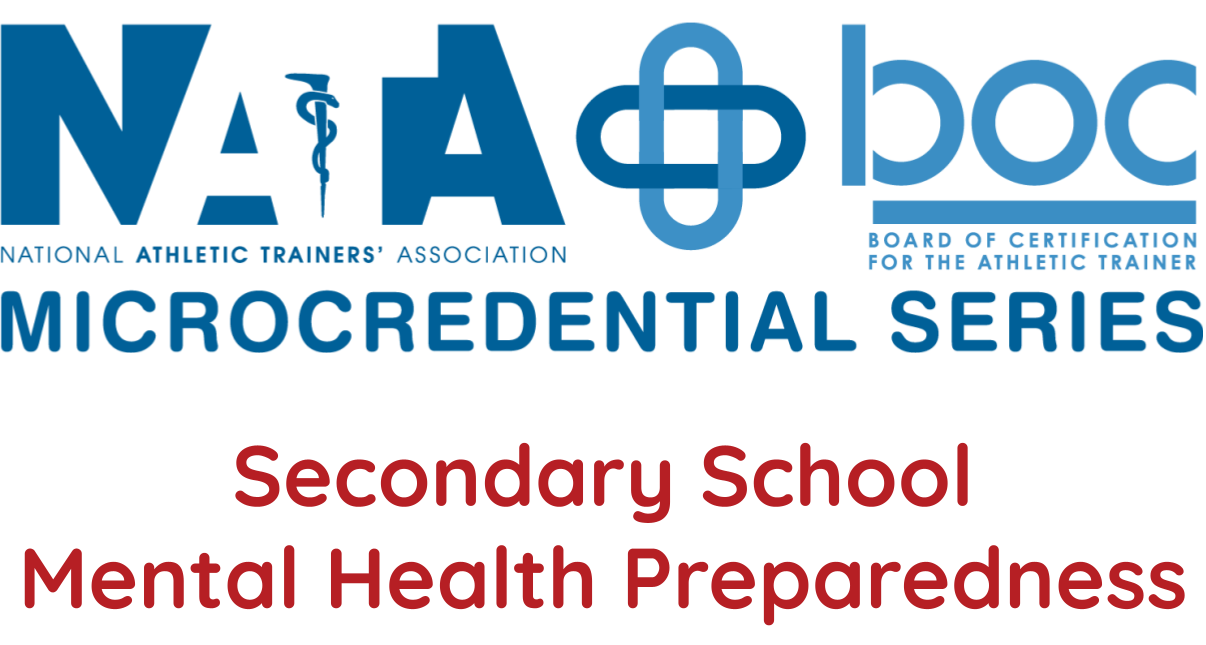
Master Preceptor Level Two - Module Seven
This course is part of Master Preceptor Level Two Certificate Package.
CEUs: 2.0 Category A
Jennifer Volberding, PhD, ATC
Department Chair Athletic Training at Oklahoma State University Center for Health Sciences.
Dr. Volberding also serves as Oklahoma State Medical Proceedings Section Co-Editor for Athletic Training.
Research interests include: cultural competence, emotional intelligence/self-efficacy, the professional preparation of athletic training students, transition to clinical practice, and first responder health care.
Kimberly Peer, Ed.D., ATC, FNATA
A 2024 Inductee to the NATA Hall of Fame, Dr. Kimberly Peer is a Full Professor at Kent State University in the MS: Athletic Training and EdD: Interprofessional Leadership programs. She has served as Editor-in-Chief of the Athletic Training Education Journal and has served the NATA, BOC, CAATE, REF and Ohio Athletic Trainers’ Association in extensive leadership roles.
Dr. Peer has been lauded with national, regional, and state level awards for her contributions to the profession and athletic training education, including but not limited to, NATA Fellow and Most Distinguished, National Academies of Practice Distinguished Fellow, OATA Hall of Fame, GLATA Outstanding Educator, and NATA Sayers “Bud” Miller Distinguished Educator Award, and most recently, the Gail Weldon Award of Excellence.
Kimberly has presented on the international and national levels on ethics education and pedagogy. She has published extensively and has co-authored textbooks on professional ethics in athletic training and athletic training pedagogy.
Marsha Grant-Ford, PhD, ATC
My specializations, clinical interests and research interests center around clinical education (preceptors and students); performing arts medicine; artistic gymnastics health and wellness; pediatric injury issues and the influence of culture on patient outcomes.
Degrees:
BS, East Stroudsburg University
MEd, University of Virginia
PhD, Temple University
David Perrin
For 15 years Dr. Perrin directed the graduate programs in Athletic Training (MEd) and Sports Medicine (PhD & EdD) at the University of Virginia. He was named the Joe Gieck Professor of Sports Medicine, founded the Sports Medicine and Athletic Training Research Laboratory, and mentored over 50 students who received a doctoral degree in Sports Medicine. His primary research interest, funded by the National Institutes of Health, focused on anterior cruciate ligament injury risk factors in female athletes.
Dr. Perrin was editor-in-chief of the Journal of Athletic Training for eight years (1996-2004) and founding editor of the Journal of Sport Rehabilitation (1990-1995). He is author of Isokinetic Exercise and Assessment and Athletic Taping and Bracing, 3nd Edition (with translations in Japanese, Greek, Chinese, Portuguese, Korean and French), editor of The Injured Athlete, Third Edition, and coauthor of Examination of Musculoskeletal Injuries and Research Methods in Athletic Training. He also served as series editor of the 5-textbook Athletic Training Education Series.
From 2007 to 2011 he served on the Advisory Committee on Interdisciplinary, Community-Based Linkages, Bureau of Health Professions of the U.S. Department of Health and Human Services. As a faculty member, he was recipient of a University of Virginia All-University Outstanding Teaching Award in 1997 and in 1998 received the Curry School of Education Foundation's Outstanding Professor Award. His professional awards from the National Athletic Trainers' Association include the Sayers "Bud" Miller Distinguished Educator Award in 1996, the Most Distinguished Athletic Trainer award in 1998, the William G. Clancy, Jr., MD Medal for Distinguished Athletic Training Research in 1999, and induction into the Hall of Fame in 2003. In 2015 he received the NATA Research & Education Foundation’s Lifetime Contribution Award. Among his honors are distinguished alumni awards from CSC, ISU, and Pitt, including induction into the Legacy Laureate Society at the University of Pittsburgh in 2008. In 2009 he received an Honorary Doctor of Humane Letters from the Arizona School of Health Sciences at A.T. Still University.

